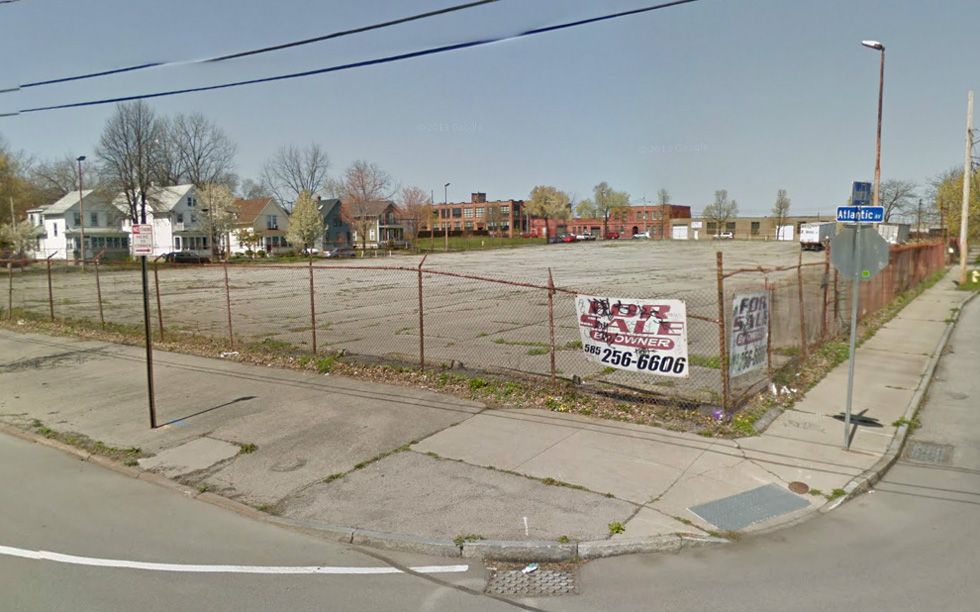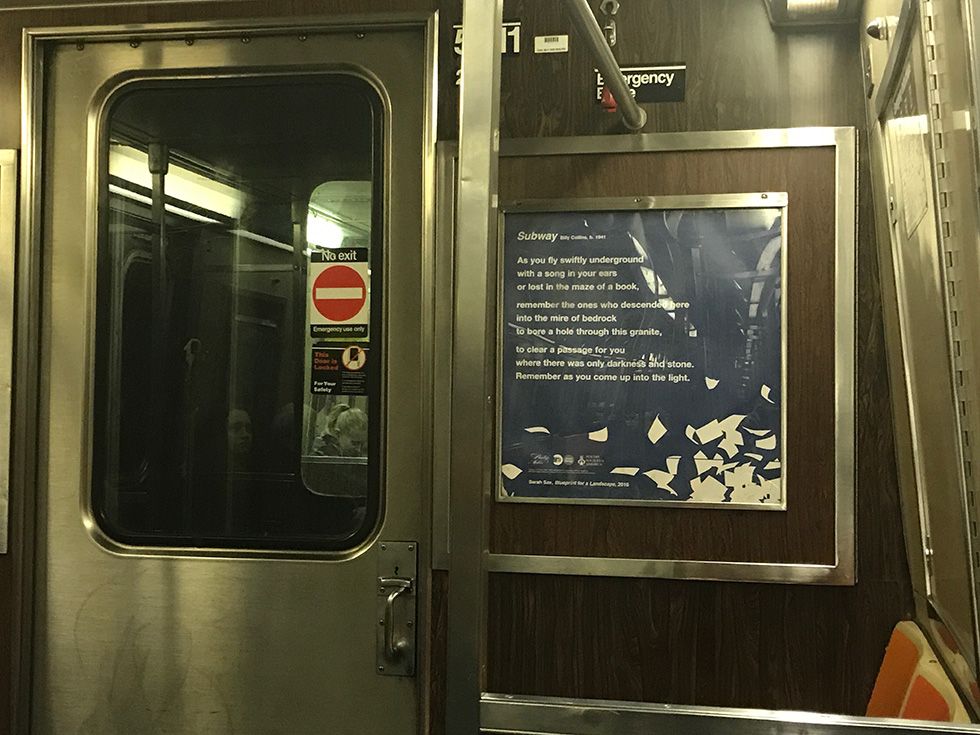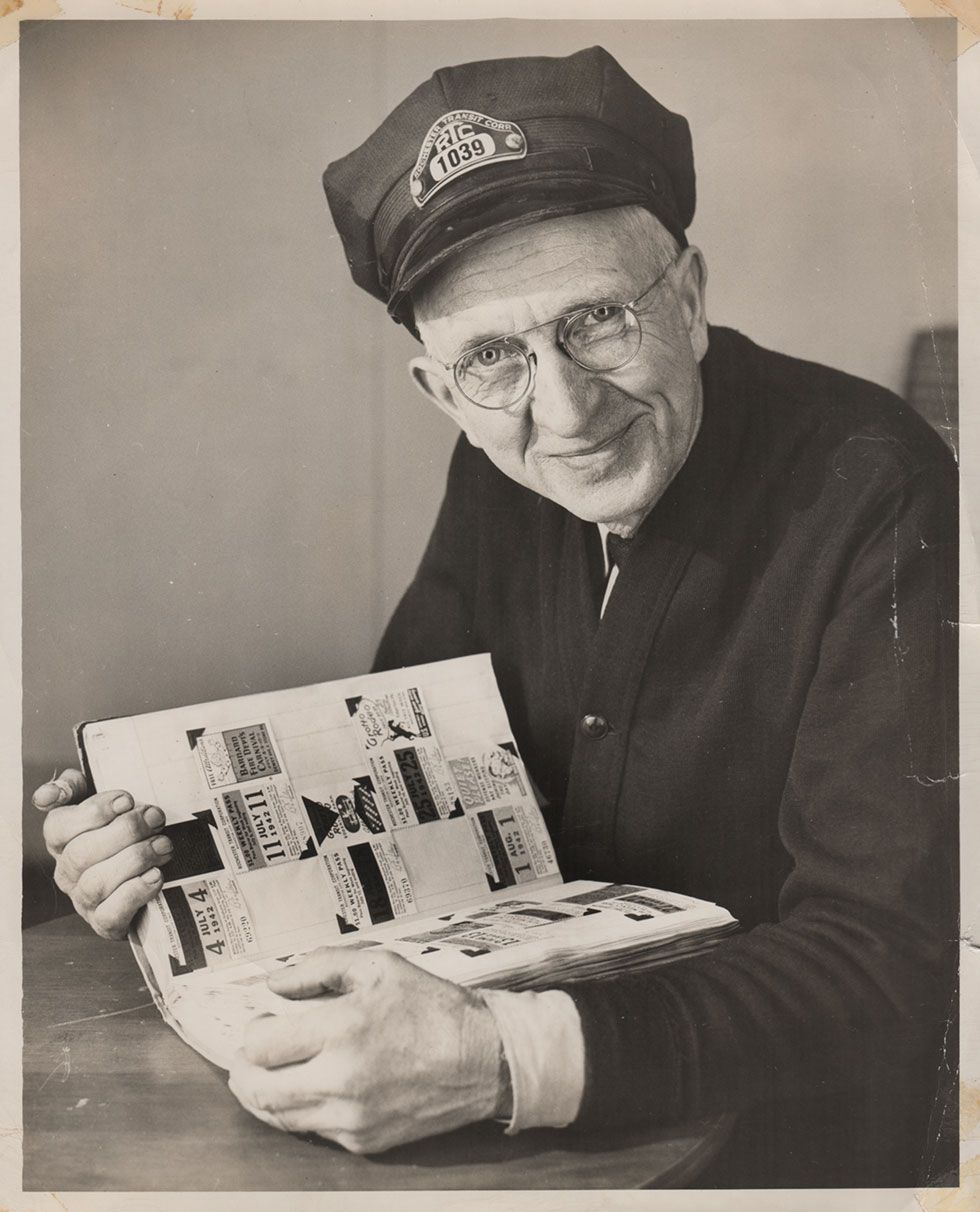This article was scraped from Rochester Subway. This is a blog about Rochester history and urbanism has not been published since 2017. The current owners are now publishing link spam which made me want to preserve this history.. The original article was published May 29, 2013 and can be found here.
![The corner of Atlantic and Anderson in the Holmes Tract. Gleason doesn't want this lot anymore. Maybe we can put it to good use? [PHOTO: Google Streetview]](https://senseofplace.dev/content/images/photos/filling-in-holmes-tract-01.jpg)
The following is a guest post submitted by Matthew Denker .
Submit your story today .
Oh 1926, it seems like you were only 87 years ago. Oh wait, what, it was only 87 years ago? Ok then. Well, since the Neighborhood of the Arts is receiving so much press these days, let's take a look at a piece of the neighborhood from then and see what was happening.
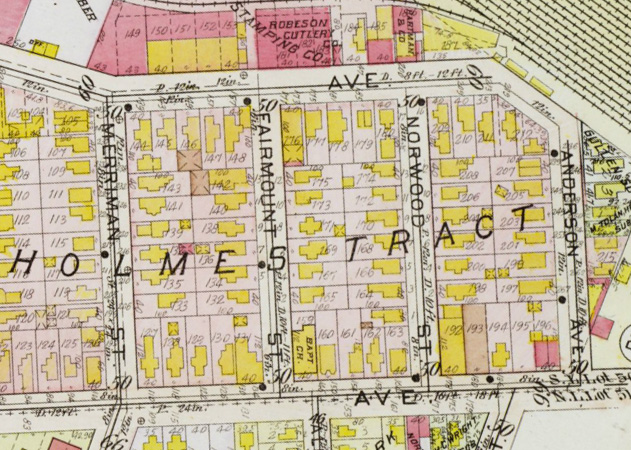
Well that looks pretty fancy. Looking at the three blocks bounded by Anderson Ave., Merriman St., and Atlantic Ave., I see about 75 houses, a Baptist Church, and what appears to be some commercial/light industry. Based on a somewhat rough ratio of 3 single family homes to 2 multi-family (2 unit) homes, we can estimate that there were about 105 units here, and an average occupancy of 2 would mean that about 210 people lived here.
Considering some of you may have been to this spot of our fine city, you might know what's coming next. Let's take a look at these three blocks

circa 201X.
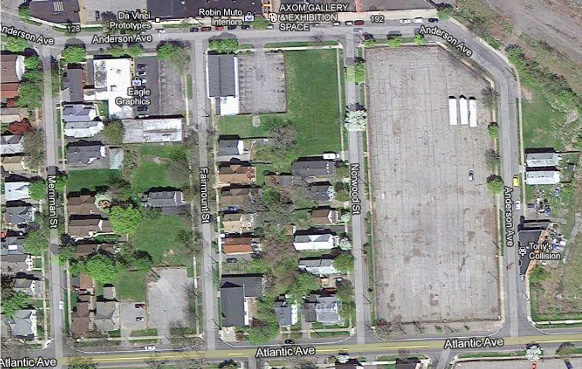
Boy did Rochester get hit hard in World War 2! There's only 20 or so houses left. Thank God the Nazis didn't get the church too. Wait what? Rochester didn't get bombed in World War 2? Was it Vietnam? Not that either? Well then, pop quiz time:
Q.) Where did all the houses go?
(a) To Florida - Rochester is wicked cold in the winter.
(b) To Pittsford - Rochester has a bunch of crime, and Pittsford is safer and has better schools.
(c) Vaporized by aliens.
(d) An entire city block was bought by Gleason works and torn down for parking they don't even use any more while some more houses were bought by other private companies to be torn down for parking while the rest of the houses were torn down by the city because they fell into disrepair (because who wants to live surrounded by parking lots).
If you guessed (d) you are surprisingly correct. Interestingly, there were probably no arguments about this when it happened, despite the idea of painting a bike lane now being considered utterly absurd

.
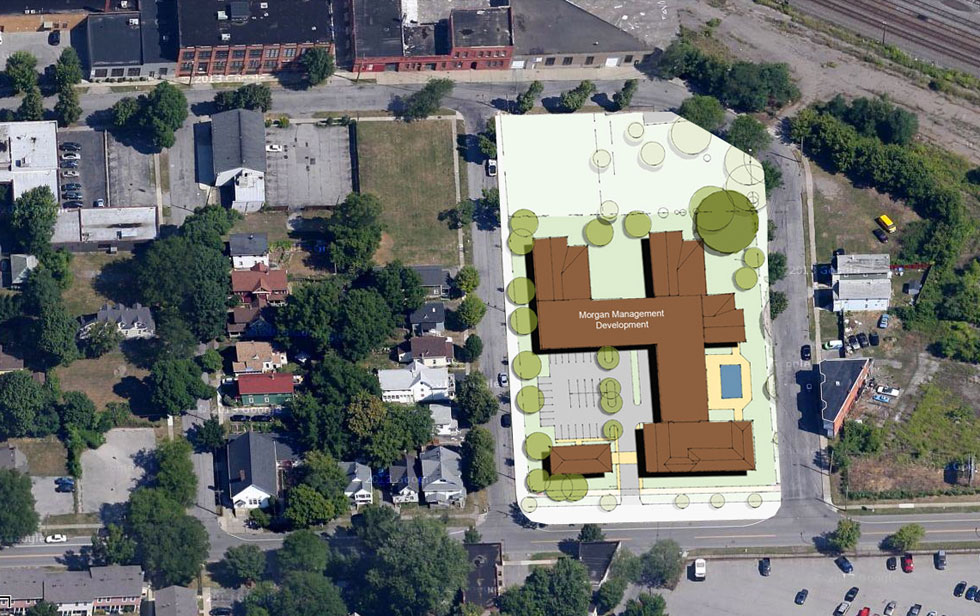
Since it's too late for the houses that had been here previously, what can we do going forward? Is there a way forward? I say there is. I say that this is the golden opportunity for preservationists to put their money where their mouth is and broker a deal. If George Eastman House and the Greek Orthodox Church really just want another parking lot at 933 University Ave.

and not a new apartment building, and if GEH is already a major client of Gleason Works, then swap for the gigantic parking lot that Gleason Works doesn't even use anymore. This lot is actually larger than the Voiture lot

. It is also all of 1,000 ft away. That means such a swap could actually allow Morgan to build more units, more amenities, and include some affordable housing and additional green space.
While rebuilding many of the singular lots would be difficult, as a different private party owns each one, this is a chance to put people back in this neighborhood. This could be really historic.
* * *
About Matthew Denker:
Matthew Denker is a Project Director by day and a fantasy real estate tycoon by night. He has a deep interest in Rochester, NY, as well as the subjects of new urbanism, walkability, mass transit, and land use. Going forward he hopes to combine all of those things to make Rochester a city competitive not only with other small, successful cities, such as Portland and Minneapolis, but even better by leveraging its easy access to the world-class cities of Toronto and New York.
